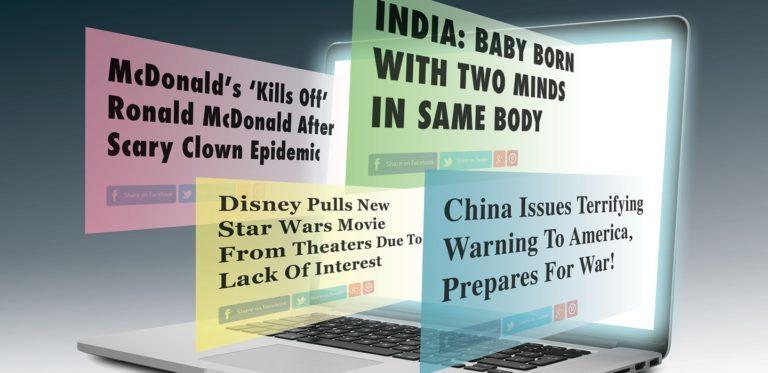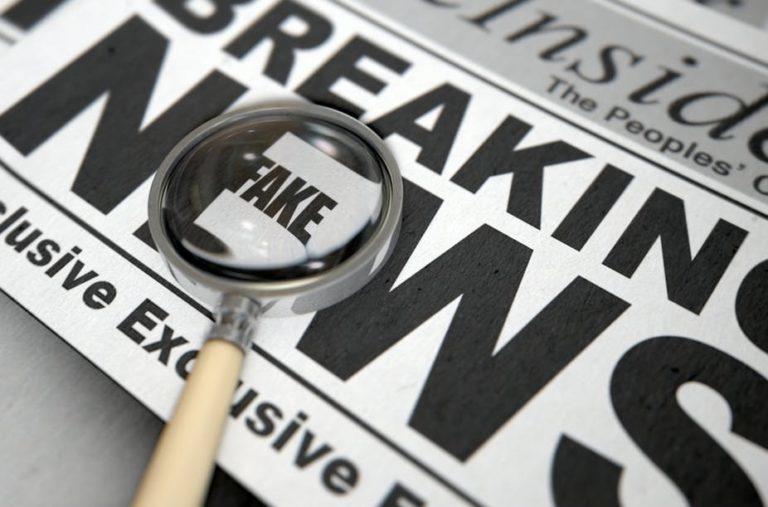Fake News: Headlines Paint False Picture Of Ukraine Aid Freeze
Authored by Graham Noble via LibertyNation.com,
Following the court-ordered release of heavily redacted emails concerning the temporary hold of U.S. financial aid to Ukraine, press bias against President Trump was on full display. The media breathlessly reported that the aid was frozen immediately after Trump’s now-famous July 25 phone call with the Ukrainian president. That all sounds terribly incriminating – if only it were true.
Misleading headlines appear to have been deliberately written to imply a sequence of events that might incriminate the president but, in fact, the articles beneath those headlines concede that a hold was placed on the aid well before the Trump-Zelensky phone call. In each case, that one, vital fact is buried several paragraphs into the respective reports.
Playing Head Games With Headlines
In the age of click-bait, journalists and editors know very well that people who get their news via constantly-shifting social media newsfeeds often do not even read complete articles; they glance at a headline and apply confirmation bias to it. If the headline echoes a political or social position they support, these attention-challenged readers will like, share, repost, upvote and so on. If they don’t like what the headline says, they will give it a thumbs down and perhaps attach to it a snarky or hostile comment.
This is all well and good. Consumers of media products may do as they wish, after all, but the problem is often that the headline itself is the only thing many are taking away from the article. No matter what information the article contains, it is that one statement in bigger, bolder font that influences the thinking of so many.
It becomes easy, then, for a news outlet with a political agenda to devise a headline which creates a false impression. Exhibit A: CNN’s Dec. 22 headline on the subject of Ukraine: “Effort to freeze Ukraine aid began about 90 minutes after call between Trump and Zelensky.”
The news network claims that this is what the newly-released emails reveal.
It appears entirely likely that CNN is assuming the bulk of its readers will get no further than this arguably explosive headline, much less read down as far as the eighth paragraph, in which a spokeswoman for the Office of Management and Budget (OMB) is quoted.
“It’s reckless to tie the hold of funds to the phone call. As has been established and publicly reported, the hold was announced in an interagency meeting on July 18,” the agency’s Rachel Semmel told CNN.
That statement – which happens to be a true and accurate reflection of established fact – entirely contradicts the story’s headline. In fact, as Semmel goes on to point out, the media picked out one line from an email and chose to interpret it in a certain way.
The reality is that the emails – or what can be extracted from them, given the many redactions – paint a different picture. Government officials were anxiously trying to get the aid released in the face of questions about where and how the money would be spent, how much of it – if any – would go to U.S. companies, and how much money Ukraine was receiving from other nations.
In context, then, the emails support the Trump administration’s account of why aid was being held up in the first place: The president was skeptical about sending aid to a foreign country without knowing how the funds would be used. Additionally, he was loathe to have the U.S. shoulder the burden of aiding Ukraine if the Europeans were not sufficiently pitching in.
The opening paragraph of an NBC News article on the same subject claimed that “a request to withhold funds came less than two hours after President Donald Trump’s July phone call with the Ukrainian president…”
Five paragraphs further down, though: “The administration put a hold on critical defense aid for Ukraine as early as the week of July 18, one week before the phone call between Trump and Zelenskiy…”
A Dec. 21 headline from The Hill screamed: “Ukraine funding freeze ordered hours after Zelensky call.” This article doesn’t even mention the fact that aid was put on hold before the call. It appears likely that, as has happened many times in the past, the Democratic Party issued a request – or, perhaps, a decree – to its media minions that they report this story in a way that supports the party’s political agenda: In this case, to support the effort to ensure the Senate convicts President Trump of the non-crimes for which he has now been impeached.
An Inconvenient President
Aside from media malpractice – which is now so common that it is barely worth reporting – the emails in question hint at one very likely reason for the disdain felt for Trump within the so-called “deep state.”
The holding up of aid was, of course, giving a lot of bureaucrats heartburn. They are not used to being this closely scrutinized by politicians. They are used to having members of Congress and presidents casually sign off on multi-million-dollar packages and then leaving it to these bureaucrats to manage the distribution of funds. What a marvelous job that is to have: Being tasked with throwing hundreds of millions of dollars around with barely any real oversight, save from one’s fellow bureaucrats.
Along comes a president who wants to know where this money is going, wants to know on what the money is being spent and does not really like the idea of throwing this money around in the first place. Little wonder the unelected government desk-jockeys do not much care for him and would like to see him gone. Why, it is almost enough to make one of them don the mantle of “whistleblower” and file a complaint about something this inconvenient president said to a foreign leader.
Tyler Durden
Mon, 12/23/2019 – 10:15
via ZeroHedge News https://ift.tt/2MmOw8O Tyler Durden

